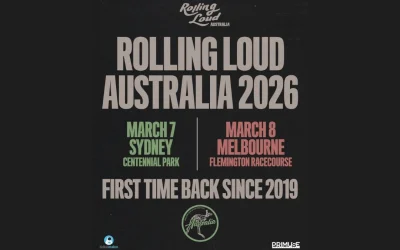Ireland’s Competition and Consumer Protection Commission (CCPC) says its probe into Ticketmaster’s sale of Oasis tickets for next month’s Croke Park shows remains “active and ongoing,” nearly a year after more than 100 fans complained of eye-watering price jumps during the original onsale.
The CCPC first opened the file last September after dynamic-pricing “platinum” seats — marketed as standard tickets but repriced in real time — left buyers in the same section paying wildly different sums. With Oasis due to play the 82,300-seat stadium on Aug. 16-17, regulators have not indicated when their review will conclude, but chairman Brian McHugh has warned Ticketmaster that enforcement action will follow if consumer-law breaches are found.
Why fans are furious
Prices on Ticketmaster’s own face-value-capped resale exchange have climbed even higher in recent weeks: upper-deck and end-zone seats have traded for €536 to €596, before hefty add-ons that include a €77.44 service charge and €2.95 handling fee. The company says those listings merely reflect the original “platinum” face value of €490.50 — even though the seats come with no VIP perks.
That loophole sits uneasily beside Ireland’s 2021 Sale of Tickets Act, which bans reselling above face value for events over 1,000 capacity. By defining its own surge price as “face value,” critics argue, Ticketmaster has effectively replicated the mark-ups lawmakers thought they had eliminated, while also collecting fees on both the initial sale and the permitted “face-value” resale.
Ticketmaster maintains the exchange “provides fans with a safe, simple and secure way to resell their tickets,” noting sellers pay no fee and buyers receive a fresh, verified barcode. The company says its resale charges “cover the extra work” of cancelling and reissuing tickets and handling multiple customer interactions.
Pressure from across the Irish Sea
Ireland’s investigation lands as U.K. regulators turn up the heat, too. On July 2 the Competition and Markets Authority warned it is “preparing to litigate” after Ticketmaster refused to offer undertakings addressing concerns that some Oasis seats were sold for £350 despite a £150 face value and that buyers in hours-long queues lacked clear pricing information. The move follows the CMA’s March finding that the company “may have breached” consumer-protection laws over its platinum pricing scheme.
FURTHER READING: CMA Threatens Ticketmaster with lawsuit over Oasis ticket sale deception
Banning resale hasn’t stopped rip-offs
With legal resale competition curtailed, event promoters and Ticketmaster have effectively no competition. Ticket sales prices can be set at any amount by the event organizer, and fans are stuck paying that price, with zero downward price pressure possible from competing marketplaces. Furthermore, the lack of a legitemite and independent resale market has led to the predictable outcome of consumers turning to black market channels, where fraud is rampant.
Lloyds Bank estimated in March that more than £2 million had already been lost to Oasis ticket scams, with victims averaging £436 each — and 90 percent of cases starting on Meta-owned social-media platforms.
What it means for fans — and the market
The CCPC’s insistence that its investigation is still live keeps pressure on Ticketmaster and promoter MCD as show day approaches. For consumer advocates, the episode underscores what they see as the hypocrisy of Live Nation and Ticketmaster’s anti-resale lobbying: in a market where third-party resellers are barred, fans are still paying inflated prices set by the primary seller itself — with no competitive downward pressure and a growing black-market scam problem to boot.
FURTHER READING: In FTC/DOJ public comments, Live Nation pushes self-regulation of entire industry; everyone else pushes breakup
Whether Irish or U.K. regulators ultimately force structural changes, Oasis’ homecoming has already become the textbook case of how “official” surge pricing can beat scalpers at their own game — and leave fans footing the bill.



